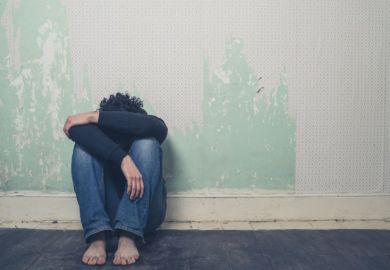Universities need to be aware of the impact that long-term illness related to Covid-19 could have on campuses as the disease spreads rapidly among the student population, academics have warned.
Research has suggested tens of thousands of people could have suffered from “long Covid” – in which patients experience symptoms including debilitating fatigue or breathing problems for weeks or even months after the initial illness – after the UK’s first wave of coronavirus.
And unlike the mortality risk from the initial disease – which is well established to be highest among older people and those with existing health problems – long Covid appears to be “less predictable” in terms of who it affects, according to a recent report on the condition.
The report from the Tony Blair Institute for Global Change featured findings from researchers at King’s College London, who have been studying data collected by an app used by 4 million people to log Covid-19 symptoms.
It suggests that one in 10 people, most of whom were not hospitalised by the disease, reported symptoms beyond four weeks and up to 2 per cent said they were still experiencing problems after three months.
Paul Garner, a professor at the Liverpool School of Tropical Medicine, who has written about his own battle against long Covid, said institutions needed to be aware of the impact the condition could have, including on staff at a time when they were under pressure “trying to convert their platforms to blended learning”.
“I think we need to make students and staff aware…so they help people recognise it, and make sure they are given appropriate supportive social and psychological help, and practical help in managing fatigue, making sure they don’t overdo it, and taking time to convalesce,” he said.
“I had to stop all my teaching face to face for [a] class of 40 students because I physically was unable to get into work. I was too unwell.”
He said although he thought long Covid may turn out to be less common in students, Professor Garner said it was “rather difficult to believe that it isn’t happening to people in their twenties”.
One study cited in the Tony Blair Institute report suggested as many as one in five 18- to 34-year-olds without prior chronic conditions reported symptoms after two to three weeks of testing positive for the coronavirus.
“The illness for me has been extremely debilitating. It is scary and if coupled with all the stress of living away from home, it could be quite an isolating experience,” Professor Garner added.
Karl Friston, professor of neuroscience at UCL and member of Independent Sage, said the risks of long-term complications from the disease prompted further questions about the decision to bring students back to campuses.
He said: “[It] begs the question: is it the right thing to do to be complacent about letting lots of students in an accommodation hall all joyfully infect each other in the complacent belief that they are going to be immune to, or impervious to, any long-term consequences?”
POSTSCRIPT:
Print headline: Long Covid must ‘be considered’
Register to continue
Why register?
- Registration is free and only takes a moment
- Once registered, you can read 3 articles a month
- Sign up for our newsletter
Subscribe
Or subscribe for unlimited access to:
- Unlimited access to news, views, insights & reviews
- Digital editions
- Digital access to THE’s university and college rankings analysis
Already registered or a current subscriber?







